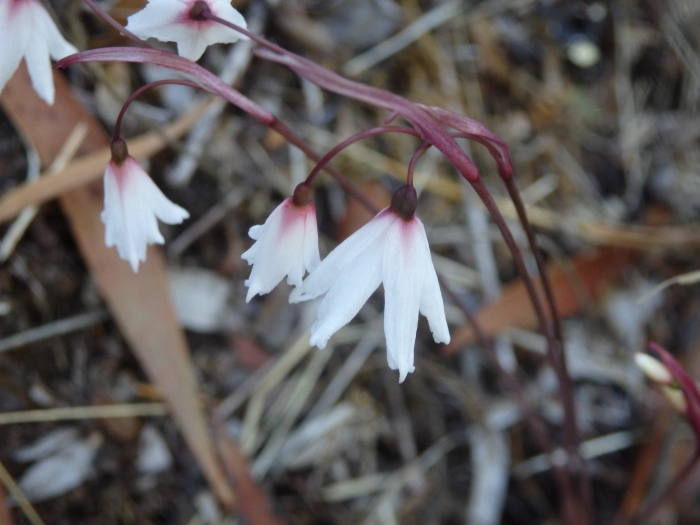Autumn Snowflake
(Acis autumnalis)
Autumn Snowflake (Acis autumnalis)
/
/

Carminda Santos
CC BY 4.0
Image By:
Carminda Santos
Recorded By:
Copyright:
CC BY 4.0
Copyright Notice:
Photo by: Carminda Santos | License Type: CC BY 4.0 | License URL: http://creativecommons.org/licenses/by/4.0/ | Rights Holder: Carminda Santos | Publisher: iNaturalist | Date Created: 2020-08-23T16:22:32-07:00 |































































Estimated Native Range
Summary
Acis autumnalis, commonly known as Autumn Snowflake, is a deciduous or semi-deciduous perennial bulb native to open woodlands and rocky scrubland in the Mediterranean region, particularly in Portugal, Spain, and North Africa. It typically grows to about 10–15 cm (4–6 in) tall and is noted for its delicate, nodding white flowers that appear in late summer to autumn. Each flower stalk can bear one to four flowers, each carried on a long, thin pedicel. The white tepals, measuring 9–14 mm long, are pinkish at the base, and less commonly, the entire tepal is pink. The outer three tepals are distinctively toothed, and there is usually only one spathe at the flower’s base. After flowering, narrow leaves often emerge, forming tufts.
Autumn Snowflake is valued for its late-season blooms and is often used in rock gardens, alpine houses, and as underplanting for deciduous trees. It offers a charming display when naturalized in grassy areas. The species has been recognized with the Royal Horticultural Society’s Award of Garden Merit, indicating its excellence for garden use. For successful cultivation, it requires light, well-drained soils and a sheltered position with full sun exposure. Some forms propagate readily by seed, while others are best increased by bulb division. Care should be taken to avoid overwatering, as it prefers drier conditions once established.CC BY-SA 4.0
Autumn Snowflake is valued for its late-season blooms and is often used in rock gardens, alpine houses, and as underplanting for deciduous trees. It offers a charming display when naturalized in grassy areas. The species has been recognized with the Royal Horticultural Society’s Award of Garden Merit, indicating its excellence for garden use. For successful cultivation, it requires light, well-drained soils and a sheltered position with full sun exposure. Some forms propagate readily by seed, while others are best increased by bulb division. Care should be taken to avoid overwatering, as it prefers drier conditions once established.CC BY-SA 4.0
Plant Description
- Plant Type: Bulb
- Height: 0.3-0.5 feet
- Width: 2-3 feet
- Growth Rate: Moderate
- Flower Color: White
- Flowering Season: Summer, Fall
- Leaf Retention: Deciduous
Growth Requirements
- Sun: Full Sun, Part Shade
- Water: Low
- Drainage: Fast
Common Uses
Deer Resistant, Drought Tolerant, Fragrant, Low Maintenance, Rock Garden, Showy Flowers
Natural Habitat
Native to open woodlands and rocky scrubland in the Mediterranean region, particularly in Portugal, Spain, and North Africa
Other Names
Common Names:
Scientific Names: Acis autumnalis , Leucojum autumnale , Leucojum autumnale var. oporanthum , Leucojum autumnale var. diphyllum , Leucojum autumnale var. pulchellum , Acis autumnalis var. oporantha , Acis oporantha , Acis pulchella , Leucojum auctumnale , Ruminia hyemalis , Acis autumnalis var. pulchella
GBIF Accepted Name: Acis autumnalis (L.) Sweet